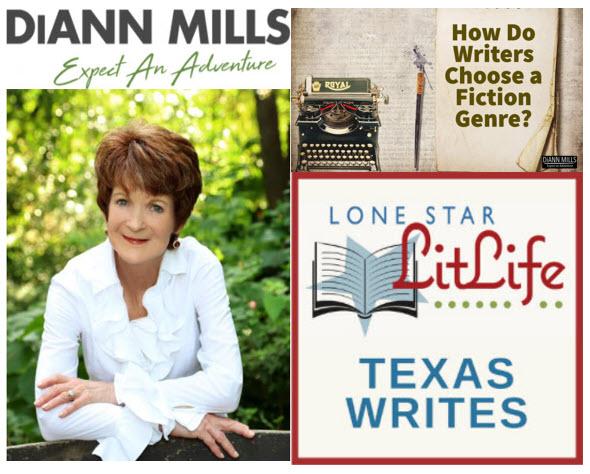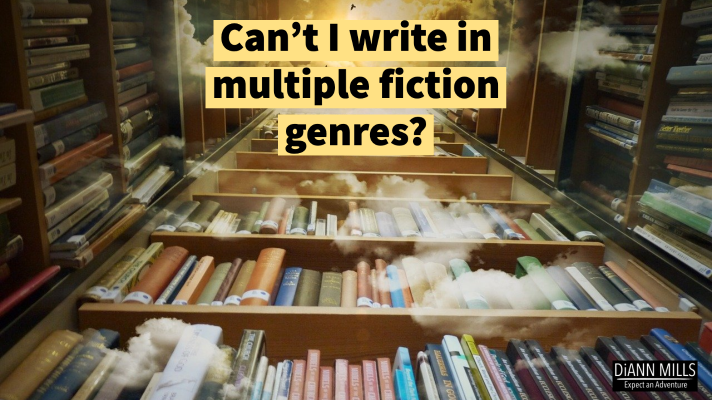
New writers often have the dilemma of choosing what genre of fiction they should write. If this is your problem, I have a few tips to help you make that critical decision.
New writers often have the dilemma of choosing what genre of fiction they should write. If this is your problem, I have a few tips to help you make that critical decision.
Take a look at an overview of five of the most popular genres.
Romance – These stories are about two people who fall in love. The plot is what brings them together, separates them, and ultimately unites them for a happy ending.
Mystery – Whodunit stories that involve someone solving a crime, usually a murder.
Suspense and Thriller – Sometimes referred to as action-adventure stories. The protagonist is in danger and dodges the “bullet” throughout, building to a climax that brings the protagonist and antagonist into a confrontation that resolves the past issues.
Historical – Stories based on actual events and sometimes people in the past.
Fantasy – Kingdoms, magic, myths, and adventure often utilizing the world during the Middle Ages. Requires worldbuilding.
Sci-Fi – Problems of those dwelling in other universes. This too requires worldbuilding.
Other genres include young adult, children, horror, western, middle grade, women’s fiction, and others. Note romance can be paired with any genre.

Here are a few common questions and answers about choosing a fiction genre.
1. Why do writers need to choose a genre?
Writers, whether traditional, self-published, or hybrid, can create in as many fiction categories as desired. That is the freedom of working for ourselves.
A few common pitfalls of writing in more than one genre:
Establishing a brand without specifics can be extremely difficult.
Readers navigate to their favorite type of reading. Writers who dabble in various genres may frustrate the readers’ expectations.
A single publishing house may not embrace all the genres that appeal to the writer.
Establishing a style and voice for each genre takes time and skill.
2. Can’t a writer use a different pseudonym or pen name for each genre?
Writers can select any name they want to grace their books; the name is a matter of personal preference. Some choose a different name because of writing in more than one genre, a need to protect their privacy, present employment complications, or a need to cover their identity for various reasons.
A few common pitfalls with multiple pseudonyms:
No one in today’s world is incognito. Through social media, others can easily learn who we are and what we look like. If the writer is fine with this, then no problem.
Marketing in face-to-face venues: signings, speaking, teaching, and media appearances are problematic.
Processing advances, royalties, and listing the pseudonym with the copyright office has the potential to add complexity, stress, and frustration.
3. Why should the publishing house care if a writer chooses multiple genres?
The sales-and-marketing team are part of a writer’s team. Sales-and-marketing teams strategize how to put a book into the hands of readers.
A few common pitfalls for the writer:
Writer photos, social media platforms, and media information focus on readers developing a relationship with the writer. When familiar connecting points are lost, the reader moves on to another writer.
Writers who make the sales-and-marketing team’s job complicated may not receive a positive outcome.
The editor’s job can be harder by ensuring the writer has a different voice for each genre.
After weighing the above information, you may or may not want to write in multiple genres.
If a writer wishes to focus on one category for creating fiction and is puzzled about which one to choose, take a look at this scenario: Imagine you will spend the next three months on a deserted island. All your physical needs will be met; however, not a single person is on the island. Neither will you have any contact with the outside world. You are permitted to take one novel. What will it be? There is the answer to the genre that holds your interest.
DiAnn Mills is a bestselling author who believes her readers should expect an adventure. She is a founding board member of the American Christian Fiction Writers, director of the Blue Ridge Mountains Christian Writers Conference, and a member of Advanced Writers and Speakers Association, Mystery Writers of America, Sisters in Crime, and International Thriller Writers.
DiAnn is passionate about helping other writers be successful and speaks to various groups and teaches writing workshops around the country. She and her husband live in sunny Houston. DiAnn is very active online and loves to connect with readers on social media and at www.diannmills.com.
